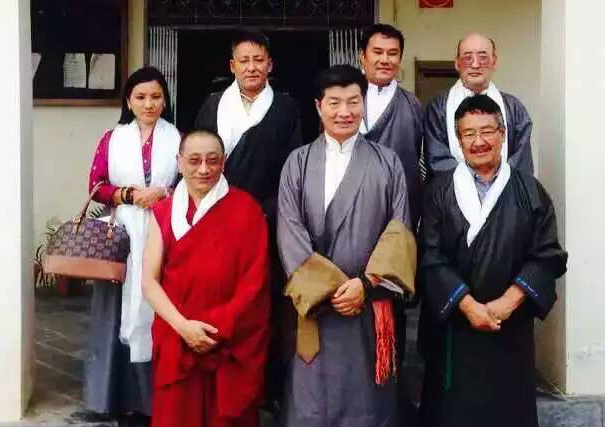It has been a busy but profitable few days for the 16th Tibetan Parliament-in-exile with the swearing in of legislators, the election of Speaker and the approval of Kalons (ministers) nominated by Sikyong Dr Lobsang Sangay for his 15th Kashag or cabinet.
Newly elected MPs were firstly sworn in by interim Speaker, Pema Jungney, ahead of their vote for the new one. The 45-member parliament comprises of 10 people from each of the three traditional provinces of Tibet, two from each of the five religious constituencies, and then two from the Tibetan communities in North America and Europe and one from Australasia.
The following day and in a repeat of history, two legislators attained the post of Speaker without the majority’s mandate. After three rounds of voting, Khenpo Sonam Tenphel and Pema Jungney remained tied with 22 votes each. A seven-hour deliberation unanimously concluded that both men should serve for two and a half years. Khenpo Sonam Tenphel will preside for the first half of the five-year term.
A tie also occurred in 2006 with the 14th Tibetan Parliament-in-exile, the result being that Penpa Tsering and the late Karma Choephel also shared the post.
The vote for Speaker was done anonymously and 44 MPs took part in the ballot. Tsering Youdon, the representative for the Amdo region of Tibet was absent and meant that the tie was possible.
Acharya Yeshi Phuntsok was elected as Deputy Speaker with 38 votes, beating Dolma Tsering who attained only four. Both he and the two Speakers took their oath from Kargyu Dhondup, the Tibetan Supreme Justice Commissioner the following morning.
Khenpo Sonam Tenphel told reporters he would do his best to fulfil his duties and responsibilities. “The two and a half year term is out of compelling circumstances,” he said, adding that the final decision to split the tenure was not according to regulations but was allowed because it had been done in the past.
Newcomers to the 16th parliament outnumber those who have served before 23:22, women and young people making up a higher proportion of legislators than has been seen before.
One woman MP, Lhagyari Namgyal Dolkar, whose efforts will primarily focus on youth’s welfare in the education sector and the inclusion of women’s safety in the Tibetan Charter said: “This increase is a sign of progress and a clear indication that given a chance women have the capability to perform on such an important platform.”
Parliament’s first session began with a welcome speech from both Sikyong and Speaker who said: “I extend my warm wishes to all of you today. The composition of this new parliament is a perfect blend of new and familiar faces.” Dr Sangay reiterated his resolve to amplify the Tibetan movement and resolve the Tibet issue.
All members of the new 15th Kashag nominated by Dr Sangay were then approved and sworn in. For many ministers it is their second term in the post. Ngodup Tsering will serve again as Education Kalon, Topgyal Khorlatsang as Kalon of the Home Department and Ven Karma Gelek Yuthok as Religion and Culture Minister. Karma Yeshi will head the Finance Department, as was Choekyong Wangchuk, now Health Kalon. Finally Dhardon Sharling, the only woman minister, will be responsible for the Department of Information and International Relations.
Several significant topics were on the agenda for this first three-day session. The 145 self-immolations to date were remembered and honoured, as well as the several legislators who passed away last year. Both the situation inside Tibet and the exiled community’s relationship with China was also talked about at length. Attempts are to be made during this five-year term to re-initiate talks with President Xi Jinping.
After widespread criticism of the recent election campaign, where regions were pitted against one another and the unity of the Tibetan people lessened, it was also be debated whether new rules should be introduced to stop this from happening again. The sadness and disappointment of the Dalai Lama was such, that ensuring respectful election campaigns is high on parliament’s agenda.
After the first session, the thirteen new MPs will attend a week-long workshop to fully acquaint themselves with the government charter, the departments of the Central Tibetan Administration and the workings of the NGOs. They will also learn about the rules concerning budget, as well as more about the governments’ official stand: The Middle Way Policy.






 Print
Print Email
Email